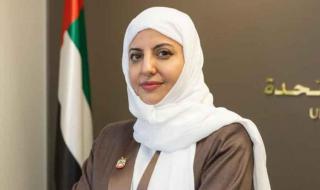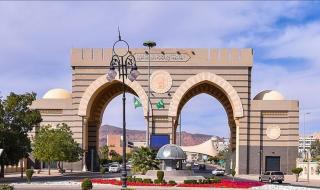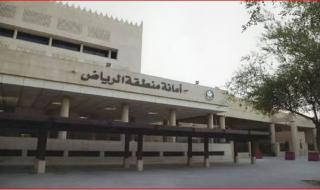طالب مجلس الشورى، مركز المناطق الاقتصادية في مدينة الرياض بالعمل على استكمال البناء المؤسسي والخطة الإستراتيجية، لضمان تحقيق المركز لأهدافه. وناقش المجلس، في جلسته العادية التاسعة من أعمال السنة الثانية للدورة التاسعة المنعقدة برئاسة رئيس المجلس الدكتور عبدالله محمد إبراهيم آل الشيخ، التقرير السنوي لمركز مشاريع البنية التحتية في منطقة الرياض، وعقب طرح تقرير اللجنة للنقاش، أبدى أعضاء المجلس عدداً من الملحوظات والآراء بشأن ما تضمنه التقرير السنوي لمركز مشاريع البنية التحتية بمنطقة الرياض. وطالب عضو مجلس الشورى الدكتور حسن آل مصلوم، مركز مشاريع البنية التحتية بمنطقة الرياض بإعداد خطة لتطبيق التنسيق والتكامل مع الجهات المنفذة لمشاريع البنية التحتية، وتطوير مؤشرات أداء موحدة لقياس كفاءة أدائها في تنفيذ تلك المشاريع. ودعا عضو المجلس الدكتور فيصل البواردي، إلى أن يعمل مركز مشاريع البنية التحتية بمنطقة الرياض بالتنسيق مع مركز أداء على مراجعة أهدافه الإستراتيجية ومؤشراته وتطويرها لتحقيق التوجهات الإستراتيجية للمركز وتعزيز دوره في تطوير مشاريع البنية التحتية.
النجار لمركز البنية التحتية: الإطار التشريعي ممكّن
دعا عضو المجلس الدكتور عبدالله عمر النجار، مركز مشاريع البنية التحتية في منطقة الرياض، وبالتنسيق مع الجهات ذات العلاقة، للعمل على إعداد إطار تشريعي وتنظيمي متكامل يمكّن المركز من أداء دوره التنفيذي والتنسيقي في تخطيط وتنفيذ ومتابعة مشاريع البنية التحتية، ما يعزز وضوح الصلاحيات والمسؤوليات بين الجهات، ويحقق التكامل والحوكمة الفاعلة، ويرفع كفاءة الإنفاق ويحد من التعارضات بين الجهات.
وعدّ النجار، البيئة التشريعية الحالية غير كافية من الناحية التنظيمية في التصرف والانتفاع والاستثمار في أصول البنية التحتية، مضيفا أن تعدد المرجعيات التشريعية وتداخل الاختصاصات بين الجهات يخلق فجوات في مراحل التخطيط والتنفيذ، ويؤدي إلى تأخير أو تكرار بعض الأعمال، مما يحدّ من كفاءة الإنفاق ويؤثر على جودة الخدمات المقدمة للمواطنين والمقيمين، ما يُبرز الحاجة إلى إطار تشريعي موحّد يُعطي لمركز مشاريع البنية التحتية الدور والصلاحيات الكفيلة بتحقيق التكامل والحوكمة الفاعلة في مشاريع المنطقة، ويعزز من جودة الحياة، ويحسن من المشهد الحضري.
The Shura Council has called on the Economic Zones Center in Riyadh to work on completing the institutional framework and strategic plan to ensure that the center achieves its objectives. During its regular ninth session of the second year of the ninth term, chaired by the Council's President Dr. Abdullah Muhammad Ibrahim Al Sheikh, the council discussed the annual report of the Infrastructure Projects Center in the Riyadh region. Following the presentation of the committee's report for discussion, council members expressed several observations and opinions regarding the contents of the annual report of the Infrastructure Projects Center in the Riyadh region. Shura Council member Dr. Hassan Al Masloom urged the Infrastructure Projects Center in the Riyadh region to prepare a plan for coordinating and integrating with the entities implementing infrastructure projects and to develop unified performance indicators to measure their efficiency in executing those projects. Council member Dr. Faisal Al Bawardi called for the Infrastructure Projects Center in the Riyadh region to work in coordination with the Performance Center to review and develop its strategic objectives and indicators to achieve the center's strategic directions and enhance its role in developing infrastructure projects.
Al-Najjar to the Infrastructure Center: The legislative framework is enabling
Council member Dr. Abdullah Omar Al-Najjar called on the Infrastructure Projects Center in the Riyadh region, in coordination with the relevant entities, to work on preparing a comprehensive legislative and regulatory framework that enables the center to perform its executive and coordinating role in planning, implementing, and monitoring infrastructure projects. This would enhance the clarity of authorities and responsibilities among entities, achieve integration and effective governance, increase spending efficiency, and reduce conflicts among entities.
Al-Najjar considered the current legislative environment to be insufficient from an organizational perspective in managing, benefiting from, and investing in infrastructure assets. He added that the multiplicity of legislative references and overlapping jurisdictions among entities creates gaps in the planning and execution stages, leading to delays or duplication of some tasks, which limits spending efficiency and affects the quality of services provided to citizens and residents. This highlights the need for a unified legislative framework that grants the Infrastructure Projects Center the role and authorities necessary to achieve integration and effective governance in regional projects, enhances quality of life, and improves the urban landscape.
ملحوظة: مضمون هذا الخبر تم كتابته بواسطة عكاظ ولا يعبر عن وجهة نظر مصر اليوم وانما تم نقله بمحتواه كما هو من عكاظ ونحن غير مسئولين عن محتوى الخبر والعهدة علي المصدر السابق ذكرة.






